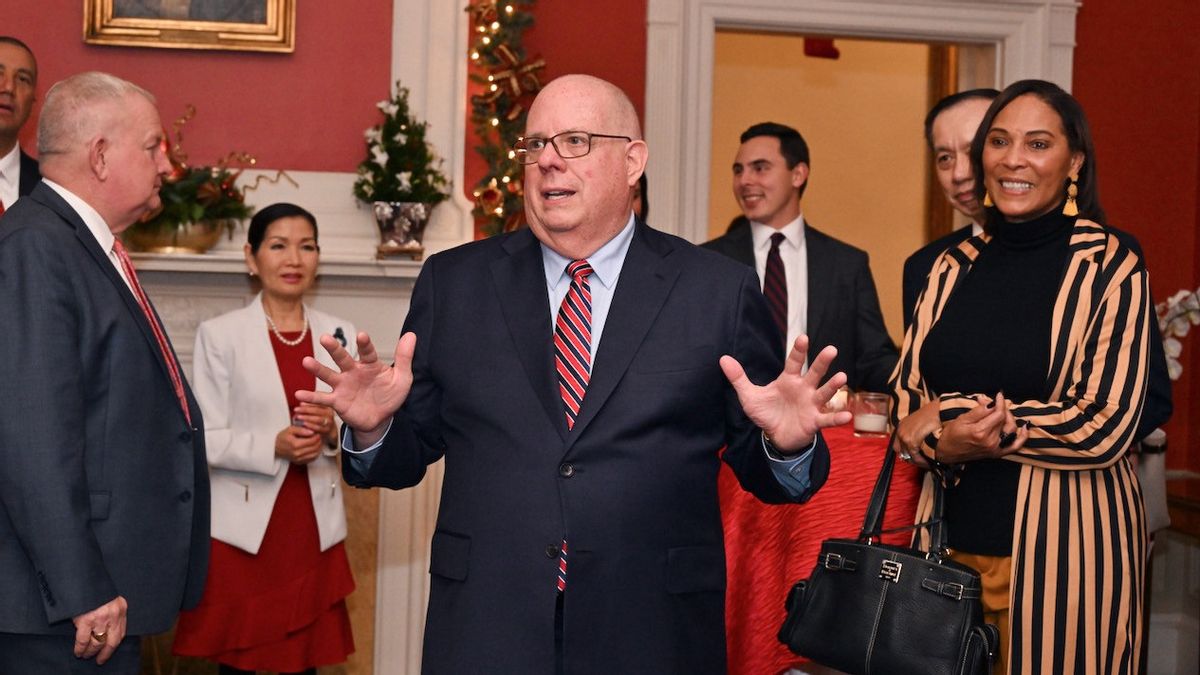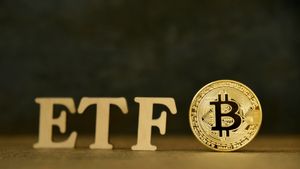JAKARTA - Maryland state governor, Larry Hogan, issued an emergency directive on Tuesday, December 6 banning the use of China's short video sharing app TikTok on state government devices and networks. This is the US's latest move in cracking down on TikTok.
Earlier, South Dakota Governor Kristi Noem last week signed an executive order banning civil servants and contractors from installing or using TikTok on state-owned devices. Meanwhile, South Carolina Governor Henry McMaster on Monday 5 December asked state agencies to ban TikTok from state government phones and computers.
Today, the State of Maryland is issuing an emergency cybersecurity directive to prohibit the use of certain Chinese and Russian-influenced products and platforms in state government—including TikTok.Details: https://t.co/K6mzeR9UU7 pic.twitter.com/G5L8k8Mg93
— Governor Larry Hogan (@GovLarryHogan) December 6, 2022
Hogan's ban includes many products and platforms influenced by China and Russia as he says they present "an unacceptable cyber security risk level for the country."
Maryland's executive branch agency must remove products from the state network and prevent access.
TikTok said concerns that prompted state bans were largely fueled by misinformation.
"We are disappointed that many state, office and university institutions use TikTok to build communities and connect with constituents no longer have access to our platforms," the company said on Tuesday.
Hogan's directives also apply to Huawei Technologies, ZTE Corp, Tencent Holdings WeChat, QQ and QQ Wallet, Alibaba and Kaspersky Lab products of Russia.
Brendan Carr, a Republican member of the Federal Communications Commission, praised Hogan's actions which he said would "protect Maryland from threats posed by bad foreign actors."
Last month, FBI Director Chris Wray said TikTok operations in the US raised national security concerns, marking the Chinese government's risk of taking advantage of video sharing apps to influence users or control their devices.
According to Wray, Beijing can also use popular apps, which ByteDance has, to "control software on millions of devices", giving it the opportunity to "technically compromise" the device.
The Foreign Investment Committee in the United States (CFIUS), which reviews foreign acquisitions of US assets for potential national security risks, in 2020 ordered ByteDance to divest TikTok due to concerns that US user data could be forwarded to Beijing.
CFIUS and TikTok have been working for months to reach a national security deal to protect data on more than 100 million TikTok users in the US, but sources say an agreement appears unlikely to be reached before January.
TikTok executive Vanessa Meryas told lawmakers in September that TikTok is making progress towards a final agreement with the US government.
Former US President Donald Trump in 2020 also tried to block new US users from downloading WeChat and TikTok, which will effectively block the use of apps in the United States, but lose a series of court battles.
President Joe Biden in June 2021 revoked Trump's executive order to ban downloads and direct the Commerce Department to conduct a review of the security concerns posed by the app.
The English, Chinese, Japanese, Arabic, and French versions are automatically generated by the AI. So there may still be inaccuracies in translating, please always see Indonesian as our main language. (system supported by DigitalSiber.id)













